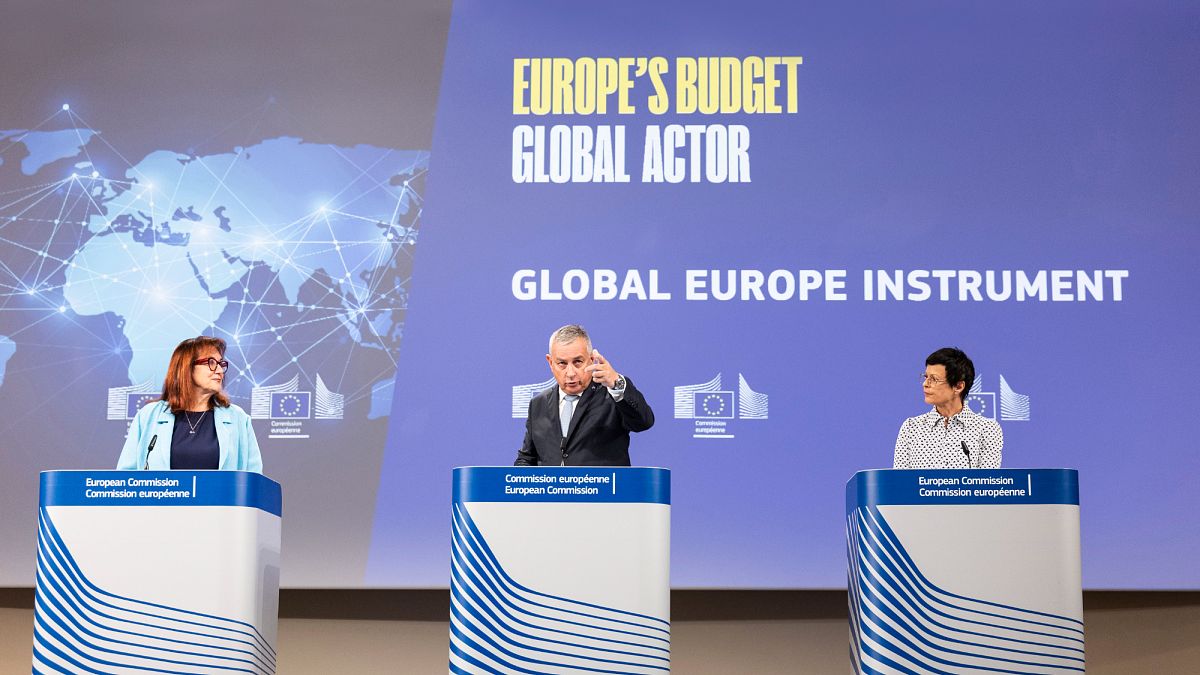

In an intricate display of budgetary reallocation, the European Union has unveiled plans that shape the financial landscape with forward-facing initiatives and strategic adjustments to its long-term budget proposal for 2028-2034. Amongst striking decisions, a third of a substantial €300 billion external action budget has been dedicated to Ukraine, highlighting a robust commitment to both assistance and diplomatic relations in the region. This funding stands as a testament to the EU’s ongoing support for development aid, enlargement efforts, and neighborhood policies, all aimed at strengthening partnerships and addressing migration issues.
The decision to allocate such a significant portion of the budget to Ukraine demonstrates the EU’s strategic prioritization of political and economic stability in the region. This move is part of a broader attempt to foster resilience and promote growth through carefully considered support mechanisms. By channeling these resources, the EU also intends to solidify its presence and influence, displaying a readiness to adapt and focus resources where they are most needed.
Simultaneously, the European Commission has proposed a renewed push against the widespread use of tobacco products through an increase in eurotaxes. While this initiative anticipates raising the cost of cigarettes and associated items, it aligns with European health directives aimed at reducing tobacco-related health issues. The underlying goal remains to encourage healthier lifestyles and reduce the economic burden of healthcare, offering a holistic approach that prioritizes the well-being of citizens.
Contrasting with these robust measures, the agricultural sector faces potential budgetary reductions despite assurances from the EU Commission that direct aids to farmers will not diminish. While funding allocations may experience a decrease, the emphasis lies on efficiently managing the available resources, ensuring that the agricultural community continues to receive ample support amidst these fiscal realignments.
Additionally, the discussion around joint borrowing and new taxes within the EU budget was addressed by Germany’s leadership. Chancellor Friedrich Merz stressed the importance of making do with the existing funds rather than extending financial liabilities through new taxation or joint borrowing ventures, advocating for pragmatic financial stewardship.
On a different note in academia, Oxford University Press has decided to cease publishing a China-sponsored scientific journal following ethical concerns related to DNA collection practices. This decision stems from multiple issues encountered in Forensic Sciences Research publications, marking a step towards upholding rigorous ethical standards in academic publishing. This move not only signifies adherence to ethical obligations but also represents a broader commitment to maintaining integrity within the global academic community.
Each of these developments reflects a continuum of thoughtful, measured decisions designed to address both current challenges and future objectives. As the EU advances into this new budgetary period, a focus on strategic allocation and ethical governance remains paramount, ensuring a balanced approach to fostering growth, stability, and well-being across multiple sectors.
Source: {link}
